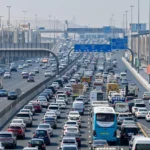Despite living in a country where Arabic is a key part of daily life, many UAE residents, including those born and raised here, still struggle to speak the language fluently.
Arabic is a mandatory subject in UAE schools, yet fluency remains elusive for many. With World Arabic Language Day approaching on December 18, this issue has sparked reflection among residents and educators alike.
The Challenge of Learning Arabic
For expats like Hasti Motevasel, an Iranian born and raised in the UAE, learning Arabic never felt urgent. “I learned basic Arabic vocabulary and grammar at school but never pursued private lessons,” she explained. “Growing up in a multicultural environment, I relied on Farsi at home and English elsewhere. I now regret not putting in the effort to achieve fluency.”
Hasti highlighted that Arabic’s structure and complex grammar make it difficult to master compared to English. “Without a personal connection to the language, it becomes even more challenging,” she added.
Similarly, Mahima Jose, an Indian expat who moved to Dubai at age seven, recalls how Arabic education in school focused heavily on memorization. “I learned Arabic up to Grade 10 but never used it in real life. Looking back, fluency in Arabic would have been a huge asset, especially in my current job in real estate,” she said.
Why Arabic Fluency is Still a Challenge
Educators in the UAE acknowledge that Arabic is often taught as a written language, with less emphasis on speaking. Ghadeer Abu-Shamat, CEO of GEMS Al Khaleej International School, believes that immersive and practical learning experiences are key. “Schools should focus on group activities, role-playing, and conversations with native speakers to help students gain confidence,” she suggested.
She also emphasized the value of extracurricular activities like drama, music, and sports conducted in Arabic. “These programs make the language fun and meaningful,” she added.
Pronunciation Barriers
The complexity of Arabic sounds, such as the guttural letters ‘ع’ (Ayn) and ‘غ’ (Ghayn), poses another challenge for non-native speakers. Sangita Chima, principal of Amity School Dubai, explained, “Arabic’s unique pronunciation makes it hard for expats to achieve fluency. It requires dedicated effort to master its distinct sounds.”
However, she believes the effort is worth it. “Learning Arabic connects expats with the local culture and deepens their understanding of the UAE,” she said.
Encouraging Arabic Learning Among Students
Educators stress that innovative teaching tools and practical exposure can help bridge the gap. With 60% of students opting for Arabic as a second language in UAE board exams, the potential for improvement is clear.
While learning Arabic is challenging, mastering the language can open doors to greater opportunities and cultural integration.





